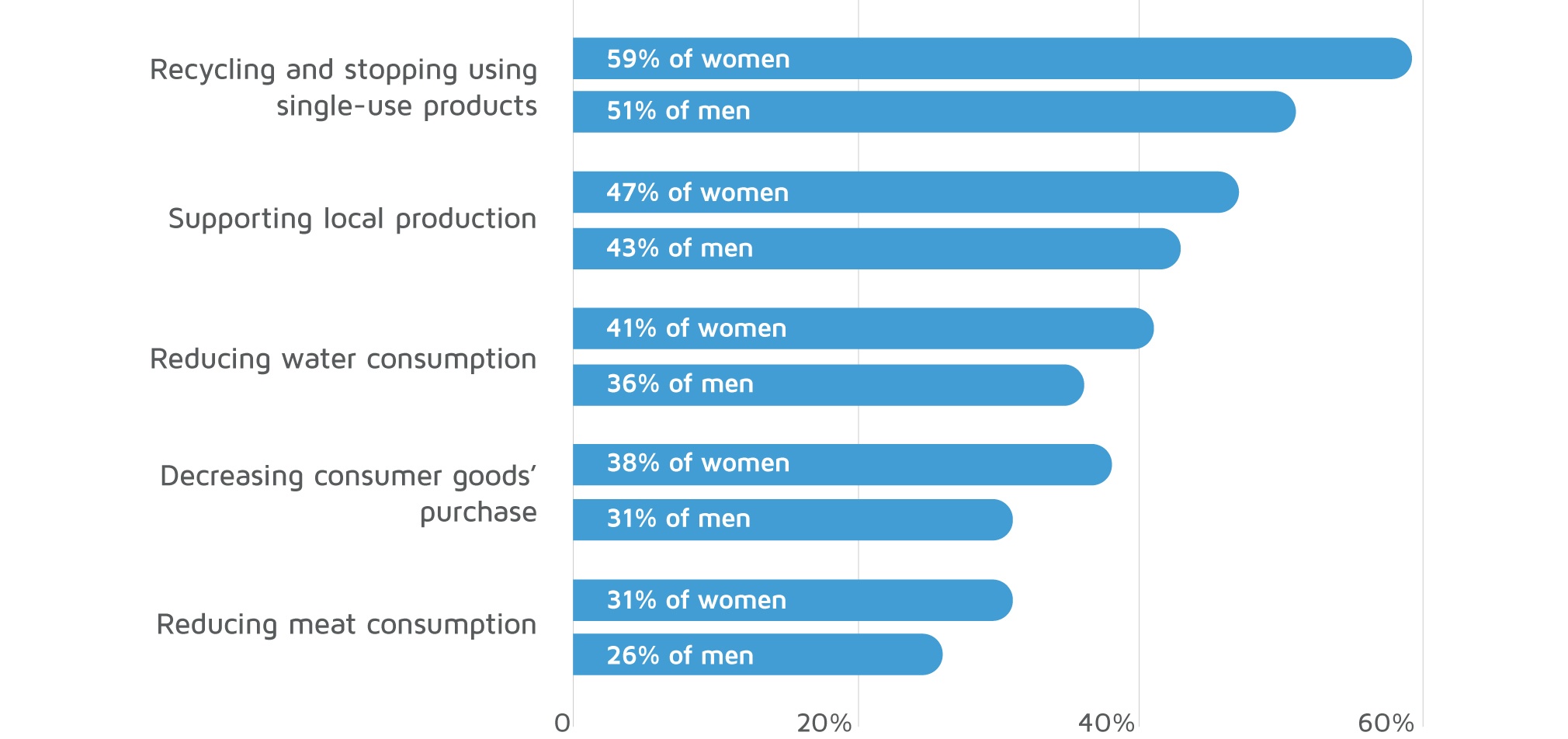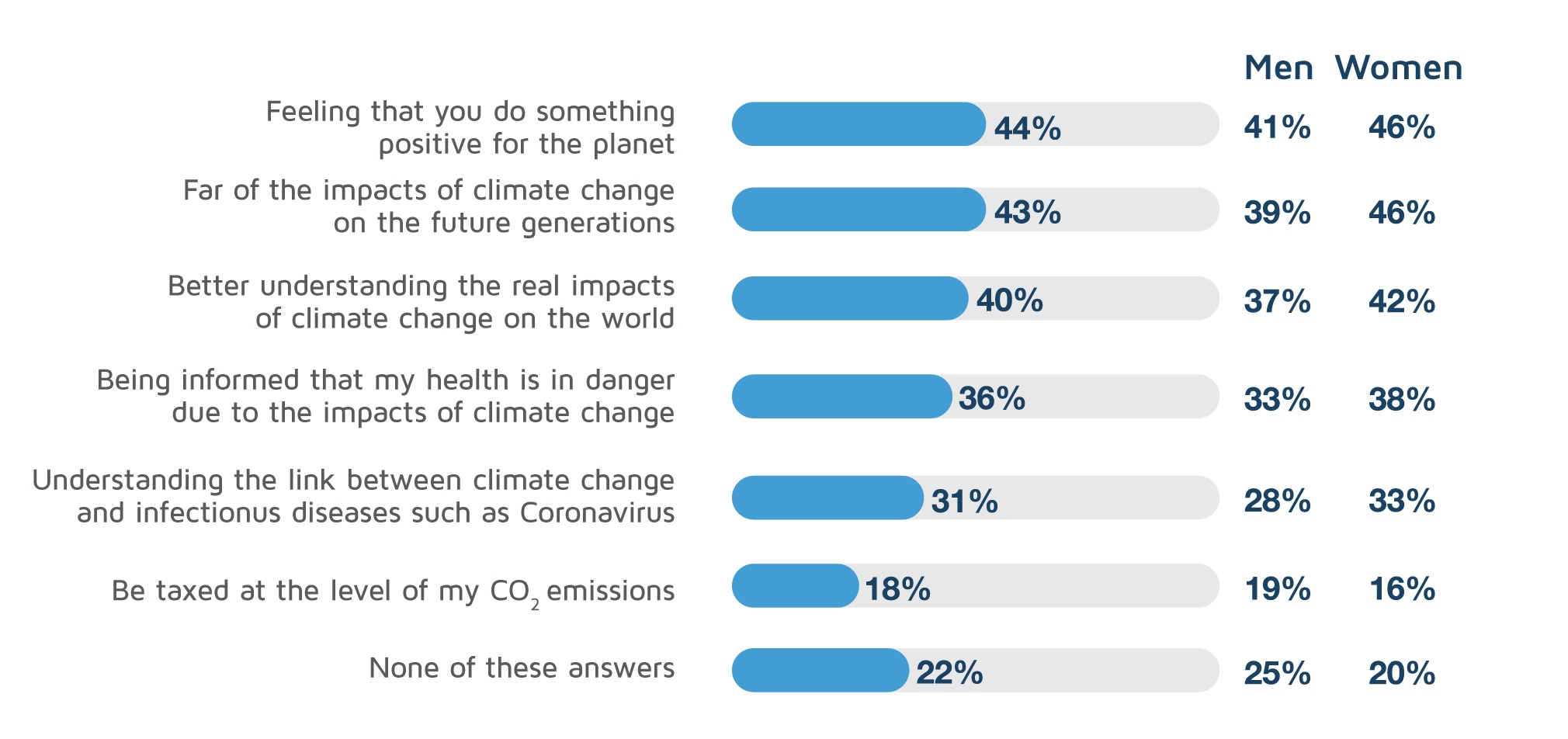Women in G20 countries are more open than men to changing their everyday habits in order to tackle climate change and reduce carbon dioxide emissions, a survey undertaken by the international platform, the Women’s Forum for the Economy and Society, indicates.
Women in G20 care about climate more than men
The survey showed that women were more motivated than men to care about recycling, buying local produce, and reducing water and meat consumption, as shown in the graph below:

The main motivation of both sexes to change their behavior in an effort to cut carbon dioxide emissions was the feeling that they are doing something positive for the planet followed by thought of what future generations may face.

At the same time, women feel less knowledgeable about climate change than men with 46% of women indicating that they feel poorly informed about the causes of climate change compared to 39% of men while 48% of women declared that they did not know much about how to fight climate crisis compared to 43% of men.
Women as decision-makers dealing with climate change
Although women are more concerned about climate change, they occupy fewer decision-making positions in public administration, and hence their impact on climate policies is less significant. The number of men working in those ministries that deal with climate, transport, or energy is higher than the number of women. In France, in 2020 the ratio was 72% men to 29% women, in Germany, it was 79.2% to 20.8% and in Italy 78% to 28%. Only the UK was an exception amongst the G20 countries with 44% of men compared to 56% of women.
Furthermore, in the majority of national delegations at the United Nations Framework Convention on Climate Change, there were more men than women. Once again, the UK was the only exception here. Thus, data clearly shows that women have fewer possibilities to impact climate policies compared to men since they occupy fewer decision-making positions.
Recommendations
The authors of the survey put forward certain recommendations that could help to raise the participation of women in actions that shape climate policy. They have suggested investing in projects that promote sustainability that are led by women including gender equality in financial policy concerning green projects and using private and public resources to support initiatives that will address the negative consequences of climate change that are borne by women.
About the survey
The relationship between gender equality and climate change was presented in the Women’s Forum barometer on gender equity where researchers surveyed almost 10,000 people in G20 countries.

